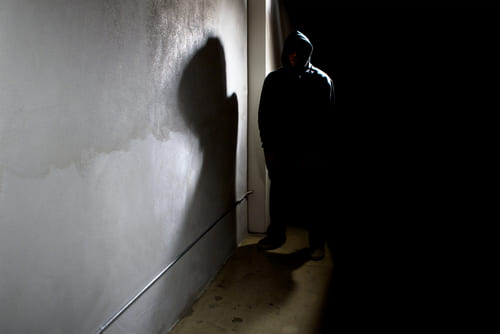
 Violent crimes are those that are likely to go beyond threats or intimidation and right into violent, sometimes fatal actions, and Illinois has a serious violent crime issue. The state has reported higher violent crime rates three years running and it does not seem to be slowing down. The consequences of being accused of or charged with a violent crime can devastate entire families, often without any merit whatsoever.
Violent crimes are those that are likely to go beyond threats or intimidation and right into violent, sometimes fatal actions, and Illinois has a serious violent crime issue. The state has reported higher violent crime rates three years running and it does not seem to be slowing down. The consequences of being accused of or charged with a violent crime can devastate entire families, often without any merit whatsoever.
If you are being accused of a violent crime, you should reach out to a criminal defense attorney as soon as possible to ensure your rights are protected - even if you think you are innocent.
According to USA Today, in 2018, Illinois had the fourth-highest murder rate nationwide at 884 homicides in that year alone. This rate spiked 30 percent just two years later. Illinois recognizes four homicide categories, according to its statutes:
 One key step following the arrest and charge of a crime in Illinois is the arraignment. It is there where you will be formally charged with your crimes and given the chance to enter a plea. Ideally, before your arraignment, you will already have retained the legal counsel of an experienced criminal defense attorney.
One key step following the arrest and charge of a crime in Illinois is the arraignment. It is there where you will be formally charged with your crimes and given the chance to enter a plea. Ideally, before your arraignment, you will already have retained the legal counsel of an experienced criminal defense attorney.
When charged with a crime, a defendant’s first courtroom appearance is an arraignment. It serves to inform the defendant of the charges that they face and provides the opportunity to enter a plea of guilty, guilty but mentally ill, not guilty, or no contest. The defendant will also be notified of their rights which include the right to an attorney and the right to a trial by a jury of their peers.
In an arraignment, you will be given the chance to enter your plea for the charges being lobbied against you. Each option can lead to a moderately different outcome in your case.
 A driving under the influence (DUI) charge is a serious offense. So, keeping "spending time in a jail cell" off the list when planning your Valentine's evening may be a good idea. If you choose to celebrate your love over a bottle of wine or champagne, do the responsible thing and do not get behind the wheel of a motor vehicle. However, if you wind up getting pulled over and arrested for a DUI on Valentine's Day, a smart move would be to make your first call to an experienced criminal defense attorney.
A driving under the influence (DUI) charge is a serious offense. So, keeping "spending time in a jail cell" off the list when planning your Valentine's evening may be a good idea. If you choose to celebrate your love over a bottle of wine or champagne, do the responsible thing and do not get behind the wheel of a motor vehicle. However, if you wind up getting pulled over and arrested for a DUI on Valentine's Day, a smart move would be to make your first call to an experienced criminal defense attorney.
There are many things you can do to avoid a DUI on Valentine's Day; chief among them is not drinking. Is alcohol essential to show someone how much you care about them? When planning a night out, and drinks are involved, reserve a restaurant within walking distance so that if you and your date partake in mutual intoxication, you can forgo the ride home in favor of a romantic hand-in-hand walk home.
 Writing bad checks can land you in some serious hot water. If charged and convicted, you could be looking at time in prison and a hefty fine. Writing bad checks is considered check fraud and could fall under forgery or embezzlement, which are felony crimes. A felony is a permanent stain on your criminal record, which could negatively affect many aspects of your life. When charged with check fraud, you must seek a knowledgeable, skilled attorney to protect your rights.
Writing bad checks can land you in some serious hot water. If charged and convicted, you could be looking at time in prison and a hefty fine. Writing bad checks is considered check fraud and could fall under forgery or embezzlement, which are felony crimes. A felony is a permanent stain on your criminal record, which could negatively affect many aspects of your life. When charged with check fraud, you must seek a knowledgeable, skilled attorney to protect your rights.
Attempting to knowingly and fraudulently obtain money, credits, funds, assets, or any property a financial institution owns can lead to massive legal repercussions and penalties. This falls under deceptive practices according to Illinois law. The amount of money involved will usually determine the penalties for the accused. Check fraud is a complex case that can encompass many fraudulent activities, such as:
 The holiday season is approaching fast, and you can expect to see an uptick in receiving packages to your door, good cheer, and Mariah Carey singing on every radio station. According to law enforcement, you can also expect an uptick in retail theft. For whatever reason, theft is on the rise during the holiday season, which means that theft and larceny charges will also be on the rise. Facing these charges is always better with an experienced criminal defense attorney on your side.
The holiday season is approaching fast, and you can expect to see an uptick in receiving packages to your door, good cheer, and Mariah Carey singing on every radio station. According to law enforcement, you can also expect an uptick in retail theft. For whatever reason, theft is on the rise during the holiday season, which means that theft and larceny charges will also be on the rise. Facing these charges is always better with an experienced criminal defense attorney on your side.
There is no one definitive answer to why holidays see a rise in theft. Theft occurs for many reasons that may be amplified by the time of season. Stress is likely the main culprit as it can connect with many holiday-related issues. Family get-togethers, losing a job, substance abuse, and financial complications can all be reasons someone may choose to commit larceny.
 Most juveniles commit no more than petty crimes to some degree in their more rebellious years. However, it is not uncommon for a juvenile to also be charged with a crime. Getting a call from a police officer letting you know that your child has been arrested can be a nerve-racking experience. To fight for your child's future and help prevent a recurrence of criminal activity, you should work with a juvenile crimes defense attorney.
Most juveniles commit no more than petty crimes to some degree in their more rebellious years. However, it is not uncommon for a juvenile to also be charged with a crime. Getting a call from a police officer letting you know that your child has been arrested can be a nerve-racking experience. To fight for your child's future and help prevent a recurrence of criminal activity, you should work with a juvenile crimes defense attorney.
Considered by some to be the "gateway crime" for juveniles, their criminal activity will often begin with petty theft or larceny. A teen might steal something easily replaceable, like a pack of gum or trading cards from a convenience or department store. They are not so bad on the surface, but these unremarkable crimes can quickly turn into criminal theft in their later years, especially if these minor crimes go unpunished as they tend to do. First-time offenders may have a chance at rehabilitation for charges of petty crimes that could help them steer clear of a tarnished educational and occupational future.
 Drugs are a serious issue in Illinois. Drug offenses are reported to be one of the most common types of crime on a national scale. The crimes come in many forms and carry charges from misdemeanors to felonies. But which drug crimes are the most common? No matter which drug charges you may be facing, it is always a good idea to have an experienced criminal defense attorney available to defend your rights.
Drugs are a serious issue in Illinois. Drug offenses are reported to be one of the most common types of crime on a national scale. The crimes come in many forms and carry charges from misdemeanors to felonies. But which drug crimes are the most common? No matter which drug charges you may be facing, it is always a good idea to have an experienced criminal defense attorney available to defend your rights.
It is unlawful in the state of Illinois to possess a controlled substance, as is the possession of drug paraphernalia. Possession is the single most common drug charge that prosecutors file each year. Drug possession charges can vary widely depending on the specific drug and how much the defendant possesses.
Illegal drugs can fall under five categories, referred to as Schedules:
 Credit and debit cards are incredibly common in today’s society. The same can be said for fraudulent activities associated with these cards. The penalties that come with credit card fraud are entirely dependent on the crimes committed involving those cards. A skilled attorney with experience in credit card fraud defense cases could be your best option in fighting any charges you could be facing for credit card fraud.
Credit and debit cards are incredibly common in today’s society. The same can be said for fraudulent activities associated with these cards. The penalties that come with credit card fraud are entirely dependent on the crimes committed involving those cards. A skilled attorney with experience in credit card fraud defense cases could be your best option in fighting any charges you could be facing for credit card fraud.
Illinois statute specifically prohibits and penalizes various crimes in credit card fraud cases. Those crimes include:
 Driving on a suspended license in Illinois is a serious offense. It is a criminal offense that can result in fines, jail time, and other penalties. The severity of the penalties will depend on the circumstances of the case, such as the reason for the suspension, your driving history, and whether you have any prior convictions for driving on a suspended license.
Driving on a suspended license in Illinois is a serious offense. It is a criminal offense that can result in fines, jail time, and other penalties. The severity of the penalties will depend on the circumstances of the case, such as the reason for the suspension, your driving history, and whether you have any prior convictions for driving on a suspended license.
Anyone who is charged with driving on a suspended license in Illinois should contact a criminal defense lawyer. Even if you think you have a good case, it is important to have a criminal defense lawyer represent you. The prosecution will have experienced lawyers representing them, and you need someone with the same level of experience on your side.
The penalties for driving on a suspended license in Illinois vary depending on the circumstances of the case. A first-time offense is typically charged as a Class A misdemeanor, which is punishable by up to 364 days in jail and a fine of up to $2,500. However, if you have prior convictions for driving on a suspended license, or if your license was suspended for certain reasons, such as DUI, you may be charged with a felony.
 It is illegal in Illinois to drive while using a handheld cell phone, texting, or using other electronic communication devices. This includes laptops, tablets, and other portable electronics. Using one of these devices while operating a vehicle is considered distracted driving. However, there are a few exceptions to this law, including reporting an emergency.
It is illegal in Illinois to drive while using a handheld cell phone, texting, or using other electronic communication devices. This includes laptops, tablets, and other portable electronics. Using one of these devices while operating a vehicle is considered distracted driving. However, there are a few exceptions to this law, including reporting an emergency.
If you are charged with a traffic violation for talking on your cell phone while driving and you were reporting an emergency, you may be able to get the charge dismissed. To do this, you will need to provide evidence that you were reporting an emergency. An experienced traffic violations lawyer can help you secure the evidence you need to fight the charge.
An emergency is a situation that requires immediate assistance because of a threat to life, health, or property. Some examples of emergencies that will allow handheld cell phone use while driving could include:
 A lawyer’s time and advice are his stock and trade.
A lawyer’s time and advice are his stock and trade.